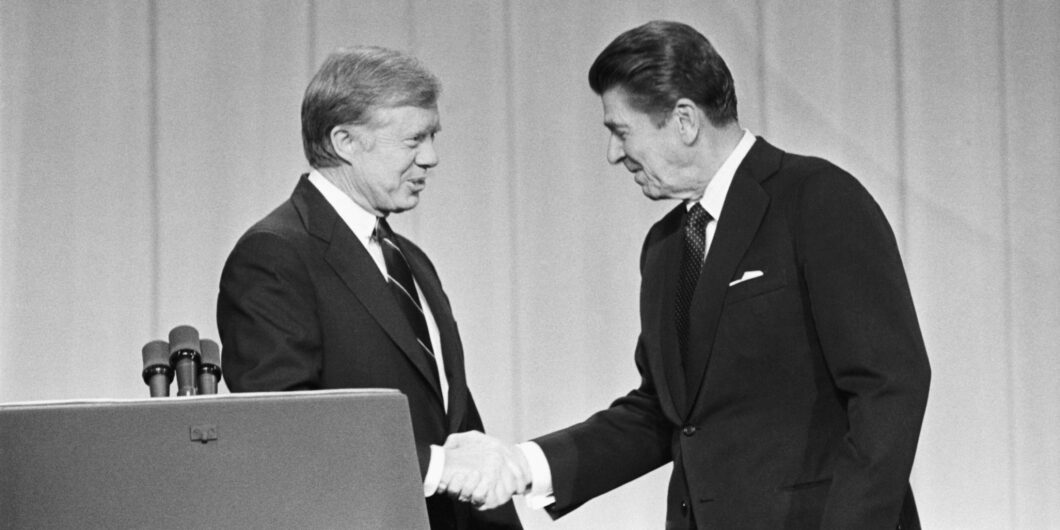In Defense of Nice Politics
In a recent review of Michael Walzer’s The Struggle for a Decent Politics, Spencer Klavan took worthy aim at the many weaknesses inherent in Walzer’s narrative. He rightly points out that, for a man who supposedly longs for a pluralist society, Walzer is far too comfortable with the illiberal politics of the new left. Klavan’s review is on the whole quite admirable, but he consistently dismisses the principles of pluralism, tolerance, and kindness as partially inadequate to solve the problems of late modernity. In truth, these ideals are the only thing that offers serious hope of political salvation from our present discontents.
The foundation of Klavan’s dismissal of liberalism is simple enough: the liberal tradition has been robbed of its meaning by hypocrites and thuggish leftist tyrants. He states: “What has become clear in the past 20 years is how many members of our ruling elite feel comfortable running roughshod over the Constitution and selectively applying the law, if their reasons for doing so seem (to themselves) to be sufficiently ‘liberal.’” He further argues that such hypocrisy has robbed terms such as liberalism, tolerance, and pluralism of all their former credibility and heft as moral signifiers.
No doubt Klavan is right on the historical facts. For some time now, both the modern left and right have sought not so much to co-exist with those different from them as to try and make everyone else more like them. The clearest sign of this common impulse is the efforts from across the political spectrum to cancel, either through the force of law or through mob justice, all who disagree with one side’s established orthodoxy. Such revolting displays of tyranny are even more concerning when they are done in the name of liberalism and tolerance—something that happens with great regularity on the left.
Klavan’s mistake is to allow the disappointing misuse of liberal principles to calcify into despair. As his own evidence shows, it is not that pluralism and tolerance are themselves the problem—it is that many are using these terms to mask their own illiberal tendencies. Instead of abandoning terms that have worked so well for previous generations, we should instead focus on reviving their true meaning.
A pluralistic society demands people capable of tolerating differences, and such tolerance is impossible to sustain without a serious recognition of the dignity of all human persons.
It is entirely possible that Klavan would agree with all of this, for underlying his essay is a deeper critique of liberalism that is far thornier than whether we should allow the misuse of terms to force us into abandoning them. The larger problem Klavan highlights is this: pluralism and tolerance alone cannot determine when something is outside the bounds of acceptability. This is a reasonable problem to bring up, and as Klavan points out, it goes to the very heart of the modern left-right divide.
However, underlying liberalism is a clear moral principle that makes the whole system work. A pluralistic society demands people capable of tolerating differences, and such tolerance is impossible to sustain without a serious recognition of the dignity of all human persons: the belief that no matter what we do, mankind will somehow manage to retain a certain nobility. By recognizing this intrinsic nobility, we start to appreciate that all life—even if lived in ways we deplore—is worthy. Such acknowledgments make living with those drastically different than us so much simpler. In short, an appreciation of human dignity makes possible a pluralist society.
Critics of liberalism usually claim that this is a fairly shallow moral framework—one incapable of offering firm guidance to how humans should live and how society should be structured. In some respects, this is certainly true. By its very nature, liberalism does not seek to tell individuals how to structure every aspect of their existence. Though, in other respects, this criticism falls short. To respect those we disagree with, to recognize their innate human dignity, is something we fail at regularly. In short, liberalism asks us each and every day to rise above our worse impulses and give way to the better angels of our nature.
Klavan criticizes “nice” politics as being unable to address the problems we face. But bringing niceties back is an important way to restore an appreciation for human dignity. Being polite to those we disagree with does not actually demand we respect them on a deeper level, but, as C. S. Lewis has pointed out, over time our souls often align with our behavior. In the end, treating others well may just force us to think better of them.
It is conceivable that the morals underlying liberalism, even when spelled out, are still not enough to satisfy. Klavan may continue to argue that something more is required to save society from decline than pluralism, tolerance, and kindness. Perhaps he is right. Nonetheless, these seem a good place to start.


